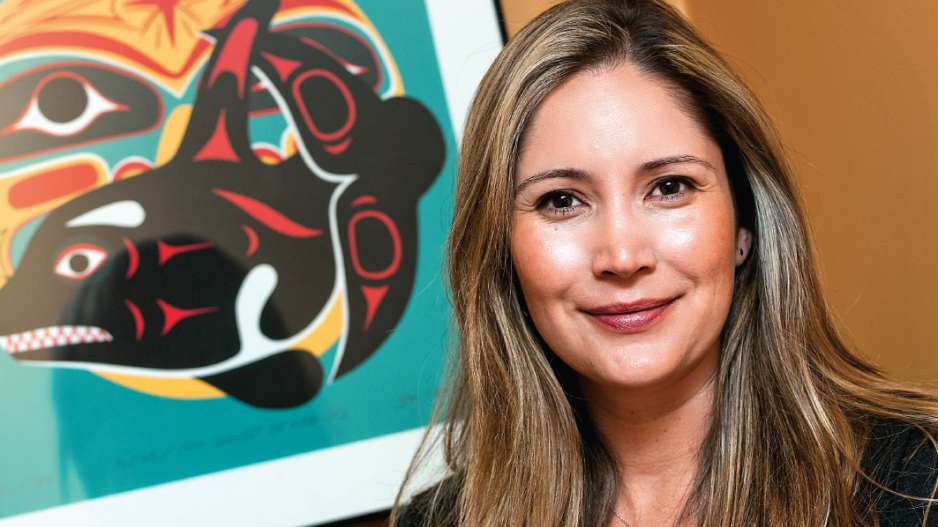A North Vancouver First Nation says its strategy of partnering with Lower Mainland businesses is paying off both for its members and the companies.
“The Nation really wants to play a large part in the Vancouver economy, and do it in a significant way,” said Lori Simcox, a project manager in the Tsleil-Waututh Nation’s (TWN) economic development office.
The Tsleil-Waututh have developed partnerships with more than 15 businesses, including Seaspan Shipyards, developer Polygon and Britco, a modular building company.
Each agreement differs slightly, but the partnerships usually include some sort of revenue-sharing arrangement and may involve a commitment to train and employ members of the Tsleil-Waututh community.
The partnerships can help the companies take advantage of aboriginal procurement policies in use by governments and Crown corporations, like BC Hydro.
Those policies are intended to boost employment opportunities for First Nation-owned businesses as well as companies that have partnered with First Nations. That can give companies an advantage in bidding processes for construction projects.
For Britco, the relationship has taken the form of a joint venture partnership. The First Nation receives a percentage of revenue from projects that Britco and TWN work on together.
In return, TWN is helping to get the word out that Britco is a partner to companies like Seaspan that have committed to hire locally as well as use aboriginal-owned or partnered companies.
“Britco’s partnership with the Tsleil-Waututh Nation is an example of working on that benefit, working together to make sure the most amount of impact in those projects goes back to the Tsleil-Waututh and First Nations,” said Colin Doylend, Britco’s director of aboriginal relations.
Simcox stressed that TWN takes care to partner with companies that share its goals and values.
“If there’s anything that happens to the reputation of the Nation, that’s going to affect the future,” Simcox said.
TWN reviews all major developments planned on Crown land within Tsleil-Waututh territory, and has developed an efficient administrative team to review those projects.
“Our treaty lands and resource department will take a look at the long-term environmental impacts of that project within [the Tsleil-Waututh’s] traditional territory,” Simcox said. “If the environmental review is acceptable, it’s passed to the economic department, and we look at the economic opportunities that can be had from that project.”
During Seaspan’s $180 million shipyard modernization project, over 25% of the construction work went to TWN-partnered businesses, Simcox said. Buoyed by the success of that partnership, TWN is now actively seeking businesses to work with. The First Nation also regularly hosts networking events to bring its partnered businesses together face to face.
Simcox said the TWN strategy, which has been in place for three years, is a legacy of the 2010 Olympics. TWN and the Tsawwassen First Nation created SPAL General Constructors to take advantage of construction opportunities.
“After the Olympics the Tsleil-Waututh Nation decided to become sole owner of SPAL because of what was learned from the construction opportunities there,” Simcox said. “That evolved into the method we have now.”
For Britco, a company with a long history of working with First Nation governments, the strategy makes sense. Britco has also partnered with nine other B.C. First Nations, although those arrangements have not taken the same form as the TWN partnership.
“With the amount of business that’s out there in the world and recognizing the amount of aboriginal history in B.C.,” Doylend said, “it’s about time that businesses wake up and work with Nations to respect those values in terms of their sustainability goals and in terms of just being good corporate actors.” •




